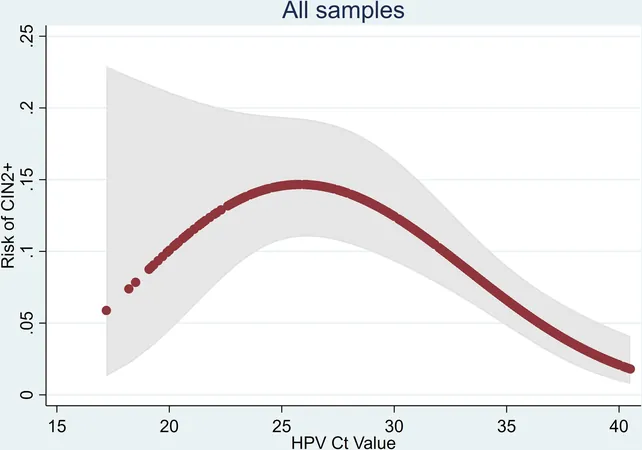
Shocking New Study Reveals Autism Rates Soar to 1 in 127 People Globally—Nearly Double Previous Estimates!
2024-12-24
Author: Siti
Introduction
A groundbreaking new study has revealed that approximately 1 in 127 people worldwide—around 61.8 million individuals—are now identified as being on the autism spectrum. This figure represents a staggering near-doubling of prior estimates and highlights the urgent need for attention and resources in this field.
Study Details
Conducted by a team of researchers across ten prominent Australian institutions, including the University of Queensland, the University of Adelaide, and the University of Sydney, the study utilized data from 2021 and was peer-reviewed, published in the esteemed Lancet Psychiatry. The authors emphasize that these alarming findings illustrate the critical importance of early detection and support for autistic youth and their caregivers worldwide.
Gender Disparity
What's particularly striking is the gender disparity observed: the prevalence of Autism Spectrum Disorder (ASD) was found to be nearly twice as high in men compared to women. This difference may stem from a diagnostic gap, as girls often receive their diagnoses later or sometimes not at all, due to exhibiting different symptoms from boys. According to research referenced by the neuroscience media outlet The Transmitter, girls might also be genetically more "shielded" from the condition than their male counterparts.
Age of Diagnosis
The study also observed that ASD is most commonly diagnosed in individuals under the age of 20, reinforcing the need for effective screening processes during early childhood. When compared to a previous assessment based on 2019 data, which indicated a prevalence rate of 1 in 271 people (or 369 per 100,000), the significant uptick in estimates can primarily be attributed to the adoption of more refined methodologies aimed at better capturing the true rates of autism.
Global Health Issue
These new findings coincide with the World Health Organization's (WHO) estimates that approximately 1% of children worldwide are diagnosed with autism, underscoring a global health issue that cannot be ignored.
Understanding Autism: A Call for Early Diagnosis
Autism, officially known as Autism Spectrum Disorder (ASD), is a complex neurodevelopmental disorder that becomes evident in early childhood and persists throughout an individual's life. The characteristics of ASD vary among individuals and can include difficulties in social communication, challenges in sensory processing, repetitive behaviors, and varying degrees of intellectual disability.
Importance of Early Diagnosis
Signs and symptoms often become apparent between the ages of 1 and 3, according to the American Psychiatric Association. An early diagnosis is crucial as it significantly enhances the quality of life and outcomes for autistic individuals, helping to mitigate risks such as social isolation, academic challenges, and employment difficulties.
Conclusion
The results of this study are not just numbers; they underscore an urgent societal need for increased awareness, improved diagnostic practices, and the provision of robust support systems for autistic individuals and their families. With this increased prevalence signaling a larger population affected, now more than ever is the time to advocate for early intervention and comprehensive care.



 Brasil (PT)
Brasil (PT)
 Canada (EN)
Canada (EN)
 Chile (ES)
Chile (ES)
 España (ES)
España (ES)
 France (FR)
France (FR)
 Hong Kong (EN)
Hong Kong (EN)
 Italia (IT)
Italia (IT)
 日本 (JA)
日本 (JA)
 Magyarország (HU)
Magyarország (HU)
 Norge (NO)
Norge (NO)
 Polska (PL)
Polska (PL)
 Schweiz (DE)
Schweiz (DE)
 Singapore (EN)
Singapore (EN)
 Sverige (SV)
Sverige (SV)
 Suomi (FI)
Suomi (FI)
 Türkiye (TR)
Türkiye (TR)